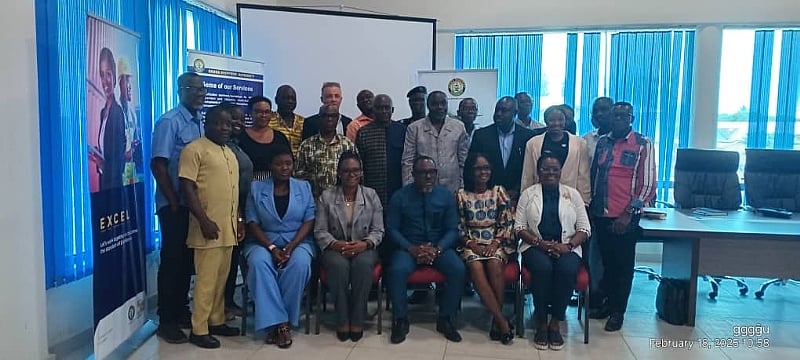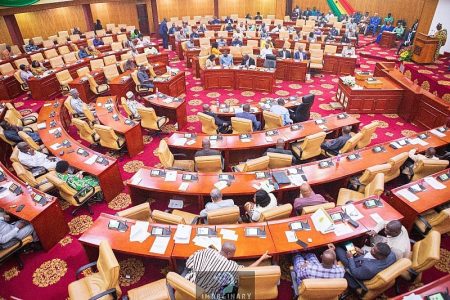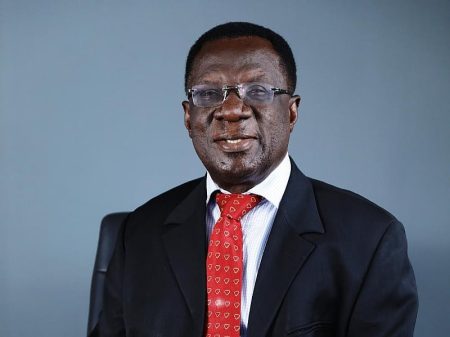Stakeholders in Ghana’s shipping trade have voiced a range of concerns and recommendations to Professor Ransford Gyampo, the newly appointed Chief Executive Officer of the Ghana Shippers Authority. Their appeals center on creating a more conducive environment for businesses operating within the sector, emphasizing the need for collaborative action and policy adjustments to address systemic challenges. A key priority highlighted was the establishment of shipper-friendly insurance schemes to protect businesses from potential losses. They also appealed for a ban on the export of raw rubber, arguing that this practice undermines local factories like GREL, which add value to the commodity before exporting it, thereby contributing more significantly to the national economy.
The stakeholders further stressed the importance of financial flexibility within the banking system. They called on the Bank of Ghana to reconsider its stringent requirements for Letters of Credit (LOC) and to facilitate transactions in CFA francs. This, they argued, would enhance Ghana’s competitiveness in regional trade by simplifying cross-border payments and fostering smoother transactions with neighboring countries. They expressed frustration with what they perceive as unfair charges imposed by shipping lines, adding to the cost of doing business. The poor state of roads used for transit trade emerged as another significant concern, as it not only increases transportation costs but also contributes to accidents and delays. The stakeholders advocated for the establishment of a uniform regulatory agency to streamline shipping processes and ensure fair practices across the board.
The issue of overloaded transit trucks also drew attention, as it poses a safety risk and contributes to the deterioration of road infrastructure. This practice, they argued, necessitates stricter enforcement of regulations and potentially higher penalties to deter overloading and promote responsible transportation practices. At the Port of Takoradi, Mr. Peter Amo-Bediako, the Port Director, congratulated Professor Gyampo on his appointment and assured him of the port’s commitment to collaborating with the Ghana Shippers Authority to foster growth within the sector. He emphasized the strategic importance of the Takoradi Port to the national economy and underscored the need for continued investment and development to enhance its capacity and efficiency. He highlighted improvements in turnaround time at the port and ongoing expansion projects designed to accommodate larger vessels, boosting the port’s competitiveness and its ability to handle increased cargo volumes.
Mr. Amo-Bediako also called on Professor Gyampo to engage with the Ministry of Interior to expedite processes related to the handling of explosives and hazardous goods. This, he explained, would facilitate the safe and efficient movement of these sensitive materials through the port, further enhancing its operational efficiency. Professor Gyampo, in response to the concerns raised by the stakeholders, expressed his commitment to addressing the challenges. He promised to establish a coordinated agency engagement platform to facilitate in-depth discussions on the issues raised. This platform would provide a forum for collaborative problem-solving and the development of strategies to improve the business environment for shipping stakeholders.
He affirmed the Authority’s dedication to preventing undue financial burdens on importers, particularly with regard to demurrages resulting from inefficiencies within the value chain. He emphasized that the Authority would not tolerate practices that unfairly penalize importers and would work proactively to ensure a level playing field for all participants in the shipping trade. Professor Gyampo reiterated the country’s commitment to promoting international trade based on mutually beneficial partnerships. He underscored the importance of creating win-win opportunities for all players in the sector, fostering sustainable growth and economic development.
He announced plans to engage with stakeholders in the development of a legislative instrument to effectively implement the Shippers Act. This process, he explained, would involve consultations with industry experts to ensure that the instrument reflects the needs and concerns of the shipping community. He encouraged stakeholders to nominate competent and experienced representatives to participate in these consultations, ensuring that the resulting legislation is robust, practical, and beneficial to all stakeholders. This collaborative approach reflects the Authority’s commitment to transparency and inclusivity in shaping the future of Ghana’s shipping industry.














